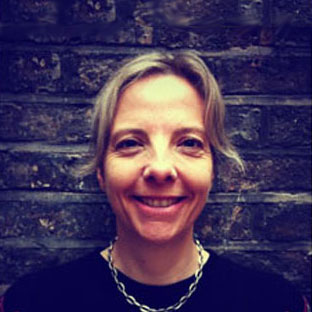We at the RSA believe in the power of making, especially when it involves newly emerging approaches; our intention is to help grow the infrastructure and opportunities for designing and making at a local level, both in London and around the country.
Our first venture into this arena was held at Somerset House last Wednesday, and was a resounding success. We introduced and connected the varied and rather fragmented groups interested in this agenda and showcased some of the great work already happening. 300 people came to this inaugural event and the basement of Somerset House's west wing was filled with professional makers and designers, hobbyists, 3D printing companies, technologists, schools, educators and many more groups that defy easy categorisation. You can see the full list and links here.

One of the surprising and heartening things about this emerging area is that in terms of age it's a level playing field: age is no barrier to entry at either end of the spectrum. The Ideas Foundation brought several groups of children from schools in the north west, all of whom were collaborating across various subject areas: English, Art, DT, and ICT students had been working together to create award winning projects that they brought to the event. Many of these teenagers had never been on a train before, let alone to London, yet clearly had huge talent, and were more switched on to the possibilities of emerging technologies than some of the adults in the room.

For many, the most surprising speaker and workshop leader was 14 year old Amy Mather, a remarkable girl who held a workshop for 15 adults making conductive thread circuits after speaking about her adventures with Raspberry Pi.

The confidence of all these young people around technology reminded me of Seymour Papert's Mindstorms work at MIT which I first discovered when studying Human Computer Interface Psychology in the eighties. One of his theories about the power of computers which really struck me and has stayed with me throughout the years is that computers are non-judgemental; you program something and it either works or it doesn't. If you're struggling at school and feel misunderstood, technology can be your saviour. The picture above doesn't look that different from what we saw this week - kids playing with robots. The difference is that with the invention of Arduino and Raspberry Pi, combined with the knowledge transfer powers of the internet, the technology is now available to many more of us.

However, the event wasn't all about robots and new technology, exciting though both areas are. Sophie Thomas ran a Great Recovery teardown workshop taking apart electronic products, exposing the elements that we throw away so casually and looking at ways we could re-design them from scratch to re-use our valuable resources. The Restart Project showed us how to fix and repair products that we might previously have thought were destined for the dustbin. Technological innovation is always exciting: developing ways to deliver consumer electronics in a sustainable way is just as important and this conversation was at the heart of the event.
What I found most exciting about the event was the amount of cross cultural connections that were being made as the day went on. On the face of it, we followed a standard trade show format of stands, talks and workshops, but what was different about this event was that everyone was meeting people from beyond their usual networks who were interested in the same subject as they were, but from a different angle. We had educationalists connecting with design innovators to inject a new way of thinking into schools, product designers hatching plans for research papers with RSA Fellows, RSA Student Design Awards winners (see video above) talking to chemists and finding out that there were less harmful chemicals that they could be using, and many more people connecting over their passion for this area. The excitement in the room was palpable all day long and everyone left having had their brains "rewired" in an unexpected and powerful way.
We are currently developing plans for an ambitious and innovative project in the areas of making and education, which will be rolled out both in London and around the country. Also look out for the RSA FutureMaker Premium; a prize for innovation in this area.
Thank you to all stallholders, speakers and workshop hosts for your fantastic contributions, to the Comino Foundation who initiated and funded the event, to everyone who attended the event and to Somerset House for kindly letting us use the recently vacated HMRC mailroom to host the event.
The event was a collaboration between the Design and Enterprise strands of the Action and Research Centre at the RSA.
Nat Hunter is Co-Director of Design at the RSA
You can follow her @redfish66

Join the discussion
Comments
Please login to post a comment or reply
Don't have an account? Click here to register.
A really good show of budding inventors and a very interesting evening conference network at Somerset House.
Lets see more of these Design Events.
Idea.
Why not link the Design Student Awards with this regular venue.